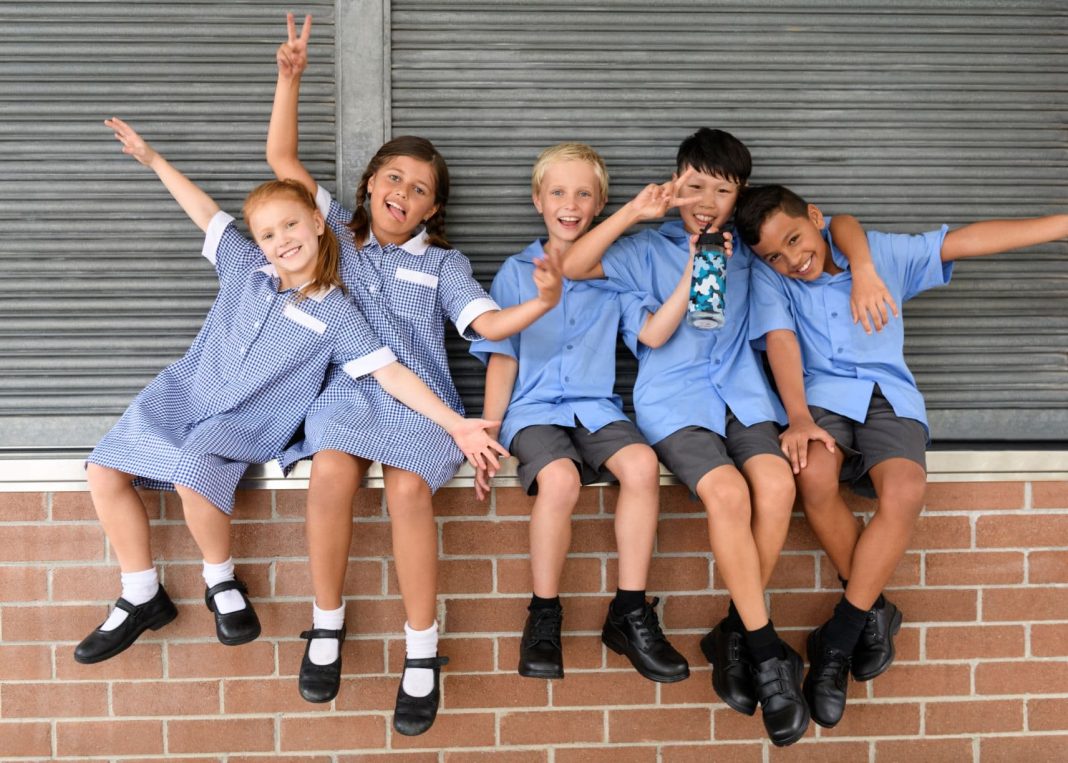If you’ve ever been the new kid at school, you’ll remember what those first day jitters were like. Will people be nice to me? Will I know where my classroom is? Will someone sit with me at lunch?
The ‘invisible’ transition for children moving to a new school or starting their education can be exciting yet challenging for both parents and students.
In coming weeks, more than four million children will be commencing their studies across the country, though those children who are beginning a new school will be somewhat ‘invisible’ among their peers.
When children and families have no prior experience of their new school, challenges for the child can be heightened and for many children, the path to starting school can be vastly different.
It can be a daunting time for both the student and their parents when starting a new school as staff will not know the child or family, there’s probably no provisions put in place for the child at the school, and the new student is unlikely to know the school environment or what is happening around them.
Professors Bob Perry and Sue Dockett, academics at Charles Sturt University’s Faculty of Arts and Education, share their six top pieces of advice on how to help children and families transition to school, particularly when they have little to no prior experience or knowledge of the school environment.
Goodbyes
Friends are important at every age, so providing the opportunities to say goodbye is beneficial for children to plan ways to maintain contact. This is particularly important when families move towns, children transition from preschool to school, or are relocating to a new school.
Friends
Making local contacts can relieve the stress of starting a new school – it’s often much easier to do things with a friend. Consider ways you can contact the community who attend or are involved with the new school and maybe visit a playgroup, neighbourhood or community centre, talk with neighbours, or visit local community events and locations to make local contacts. This is important for both children and parents when starting up at a new school.
Talk
Children are generally keen to learn and understand things, and this is the same with knowing what school will be like. Talking to your children about what will happen, who will be there, and what it will look like is beneficial to managing their stress. You can talk about your own experiences (hopefully positively) and maybe grab some books, stories, and videos about school that they could learn from.
Research
Checking out your school’s Facebook page or website can help you assess what the school looks like, the uniforms your child will be wearing, and the sorts of activities available. They may also be having a ‘get to know your teacher day’ before school begins where you can visit your child’s classroom, meet the teacher, and have a look around the campus.
Contact
Before the first day of the new year, it’s best to contact the school to get started on the enrolment process. This can also assist in setting up a plan to manage the start of school and how to best transition your child.
Drive-by
A drive past the school is a great way to ease your child into the beginning of school, so they become familiar with what it looks like, how long it takes to get there and have had practice getting there. This is a great idea if you are new to the area as it gives some certainty to a new situation.
One key marker when considering whether the move to a new school has been effective is determining if a sense of belonging has been established.
This can be difficult to gain, especially in the beginning when everyone seems too busy to get to know you, there’s little space being made for you, and it’s only the first few days of the school year.
The ‘invisible’ children of the new school year deserve an enjoyable and successful start to their school career, and all involved in their lives can assist in supporting them through their journey.
Canberra Daily would love to hear from you about a story idea in the Canberra and surrounding region. Click here to submit a news tip.



